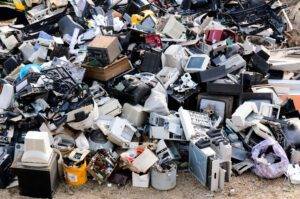The government has made little progress on tackling UK’s e-waste nightmare

<?xml encoding=”utf-8″ ?????????>
The Environment Audit Committee has raised concerns about the UK government’s progress in tackling electronic waste (e-waste), highlighting that little headway has been made since its report in November 2020.
The committee’s chairman, Philip Dunne, expressed disappointment over the government’s response to their recommendations, stating that while some measures were accepted, they have not been fully implemented.
According to the committee’s report, each UK household holds an average of 20 unused electronic items, indicating the magnitude of the e-waste issue. Incorrect disposal of e-waste can lead to environmental contamination due to the leakage of toxic chemicals. Additionally, the recycling of electronic devices is crucial for recovering precious metals necessary for renewable energy infrastructure, aligning with the goal of achieving a net-zero economy.
Despite the government’s claims of taking action to address e-waste, the committee noted that many of their recommendations have not been incorporated into policy or reflected in ongoing consultations. The scope of the government’s consultation on e-waste was deemed too narrow by the committee, as it did not encompass several key recommendations, such as holding online marketplaces accountable for ensuring compliance with UK laws on electronic products.
The committee urged the government to expand the scope of its consultation to include a broader range of proposals aimed at transitioning the UK towards a zero-waste economy. Some of these proposals include holding producers accountable for the collection and treatment of end-of-life electronics, mandating free collection services for bulky electronics, and requiring electronic goods to provide information on their expected lifetime and software update support.
In summary, while the UK government has taken some steps to address e-waste, the Environment Audit Committee stresses the need for more comprehensive measures and greater implementation of their recommendations to effectively tackle the growing e-waste crisis.




